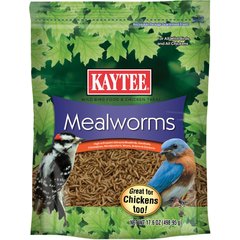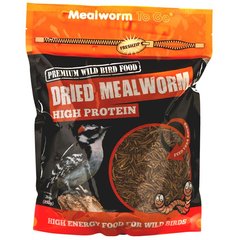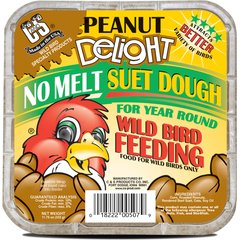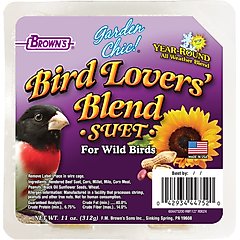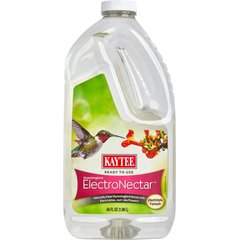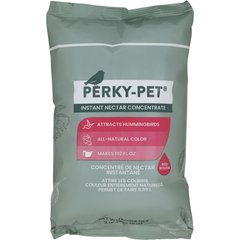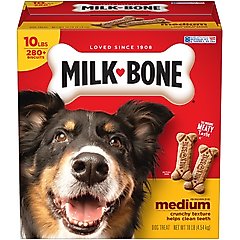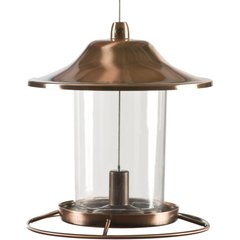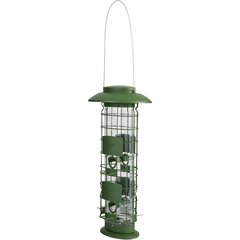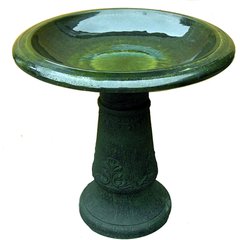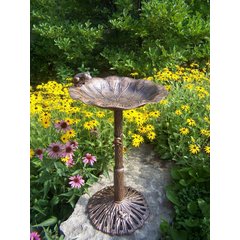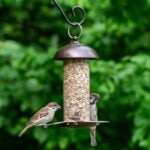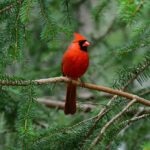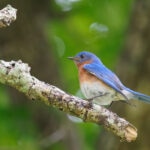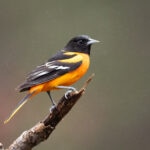Feed for Birds: 7 Backyard Bird Food Options That Aren’t Seeds
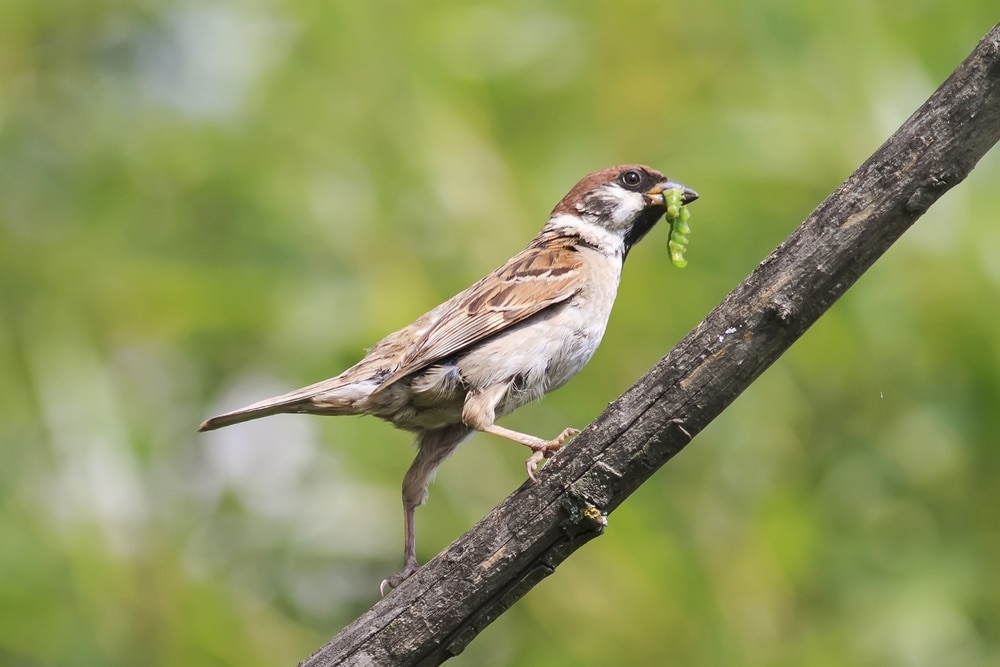
Photo by Chewy
Feeding birds right in your backyard is a fun and rewarding way to view wildlife from your own window. While feeding birds seed from a bird feeder can keep local birds happy and healthy, did you know that you can feed birds non-seed options as well?
Non-seed foods can provide needed fats and nutrients that birds’ bodies need, and can help them feed their young, give them energy for migrating, and keep them well-fed during the winter months.
If you’d like to try feeding your backyard birds a plethora of non-seed foods, look to this expert-guided list.
We’re also offering up some different types of ways to feed birds (spoiler: traditional bird feeders aren’t your only option) and providing expert tips for drawing birds to your yard and keeping them happy.
What Do Wild Birds Eat?
Birds eat as many different foods as you can think of, says Dana Varble, DVM, CAE, chief veterinary officer with the North American Veterinary Community (NAVC).
“Everything from seeds, fruit, nectar, insects, fish, and other animal protein,” she says. “For the most part, bird feeders attract a wide variety of songbirds, particularly those that utilize seed as an important part of their diet.
“However, you can experiment with different seed mixes, suet ingredients, and other additional bird foods, such as fresh or dried fruit or even mealworms.”
She adds that different foods will attract different birds, which is part of the appeal of trying new food sources.
Also, in many geographic areas the season will also make a big difference in which birds you see and which types of food they are attracted to.
7 Non-Seed Food Options for Feeding Backyard Birds

tirc83/Getty
1. Insects
If you make a habit of observing birds in the wild, you know that they thoroughly enjoy insects. If you’d like to try to feed some insects to your backyard birds, try:
- Mealworms
- Beetles or molted mealworms
- Wax worms
- Crickets
- Fly larvae
These types of bugs are particularly beloved among songbirds, like:
- Woodpeckers
- Nuthatches
- Robins
- Wrens
- Bluebirds
- Warblers
- Orioles
- Flycatchers
- Tanagers
- Cardinals
- Grackles
- Grosbeaks
- Chickadees
- Vireos
- Catbirds
- Sparrows
- Timice
- Jays
It’s best to feed insects to your backyard birds during seasons when insects themselves are more abundant in the wild, such as spring and summer. This type of feeding can coincide with nesting season and when juveniles are first fledgling.
Important note: There are also some insects you shouldn’t feed birds, which include monarch butterflies and tiger moths.
Recommended Products
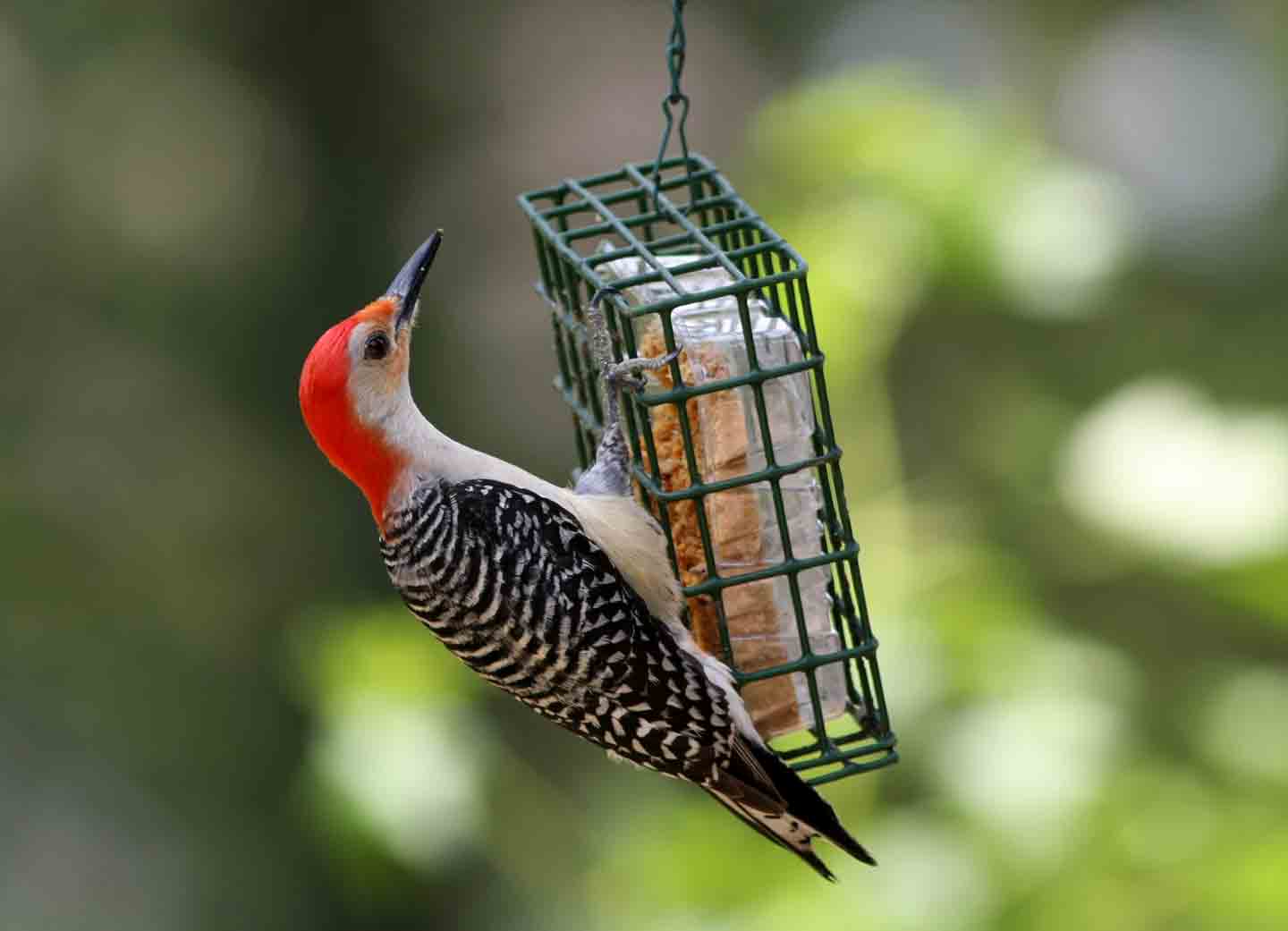
JLFCapture/Getty
2. Suet
Suet, or fat that’s been molded into square cakes and often mixed with things like birdseed, fruit, nuts, or even mealworms, is very attractive to birds. Generally, suet doesn’t melt, so it can be used all year, but it can be especially helpful to hungry birds during late fall and winter. Make your own with an online recipe or try a store-bought variety.
Basically every bird will eat suet. In fact, sometimes birds prefer suet over any other food. The list of species who love suet is long, and they include:
- Woodpeckers
- Tufted titmice
- Carolina chickadees
- Carolina wrens
- Brown thrashers
- Catbirds
- Mockingbirds
- Hermit thrushes
- Blue jays
- Fish crows
- Black-throated blue warblers
- Pine warblers
- Yellow-rumped warblers
- Cardinals
- Towhees
- Nuthatches
- Ruby-crowned kinglets
- Baltimore orioles
- Song sparrows
- White-throated sparrows
Just be sure to regularly check the suet; when the weather turns warm, it has the capability to turn rancid.
Recommended Products
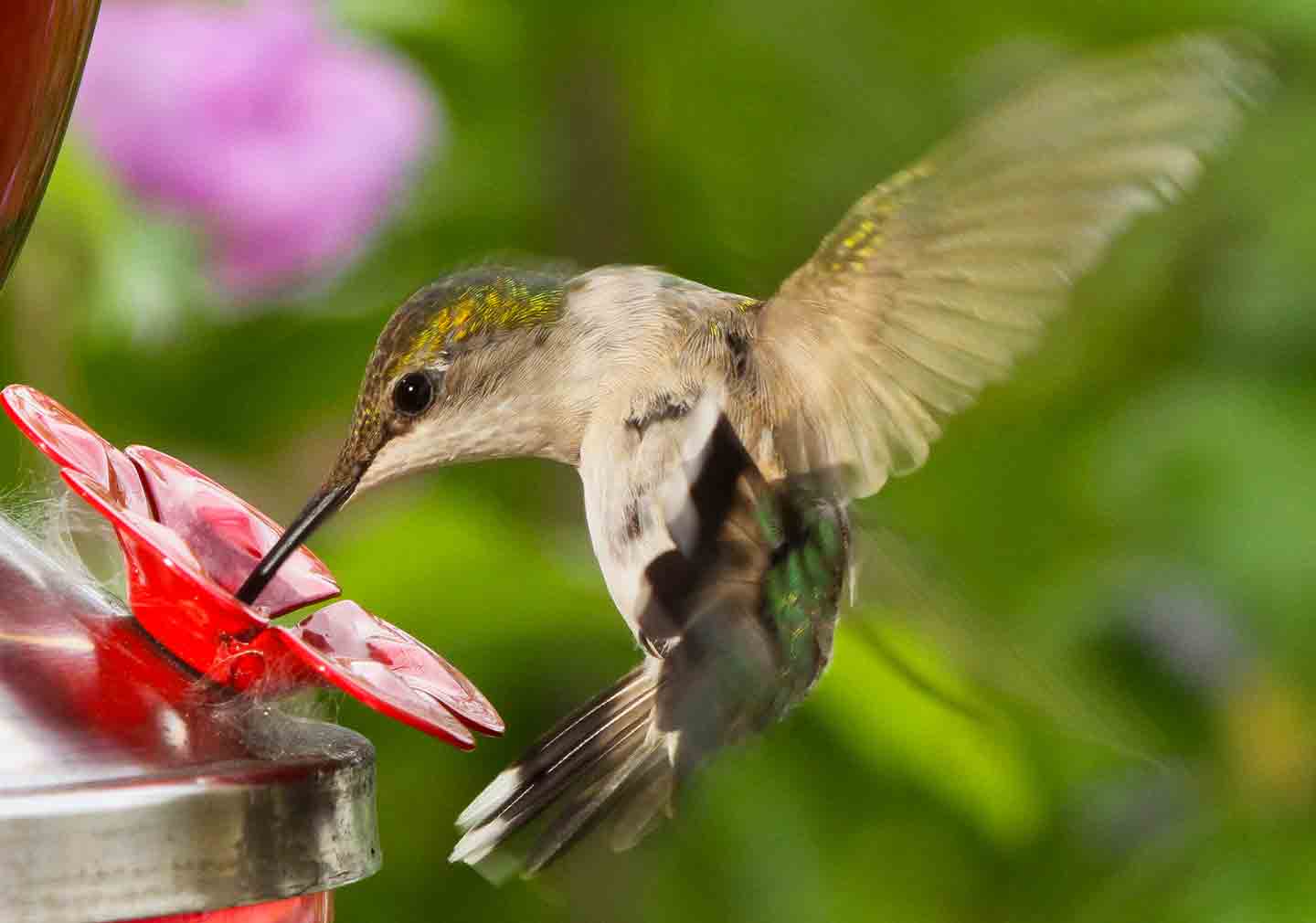
Hooplion/Getty
3. Nectar Substitutes
Nectar substitutes, such as sugar water, are attractive to nectar specialists, like hummingbirds, and some fruit-eating birds like orioles in warm seasons. Be sure to change unused sugar water regularly, as it can spoil quickly in warm weather.
Recommended Products

PamWalker68/Getty
4. Dog Biscuits
Yes, you read that right—birds can eat dog biscuits! Soaked dog biscuits can be attractive to birds year-round, such as crows, jays, grackles and starlings.
Recommended Products
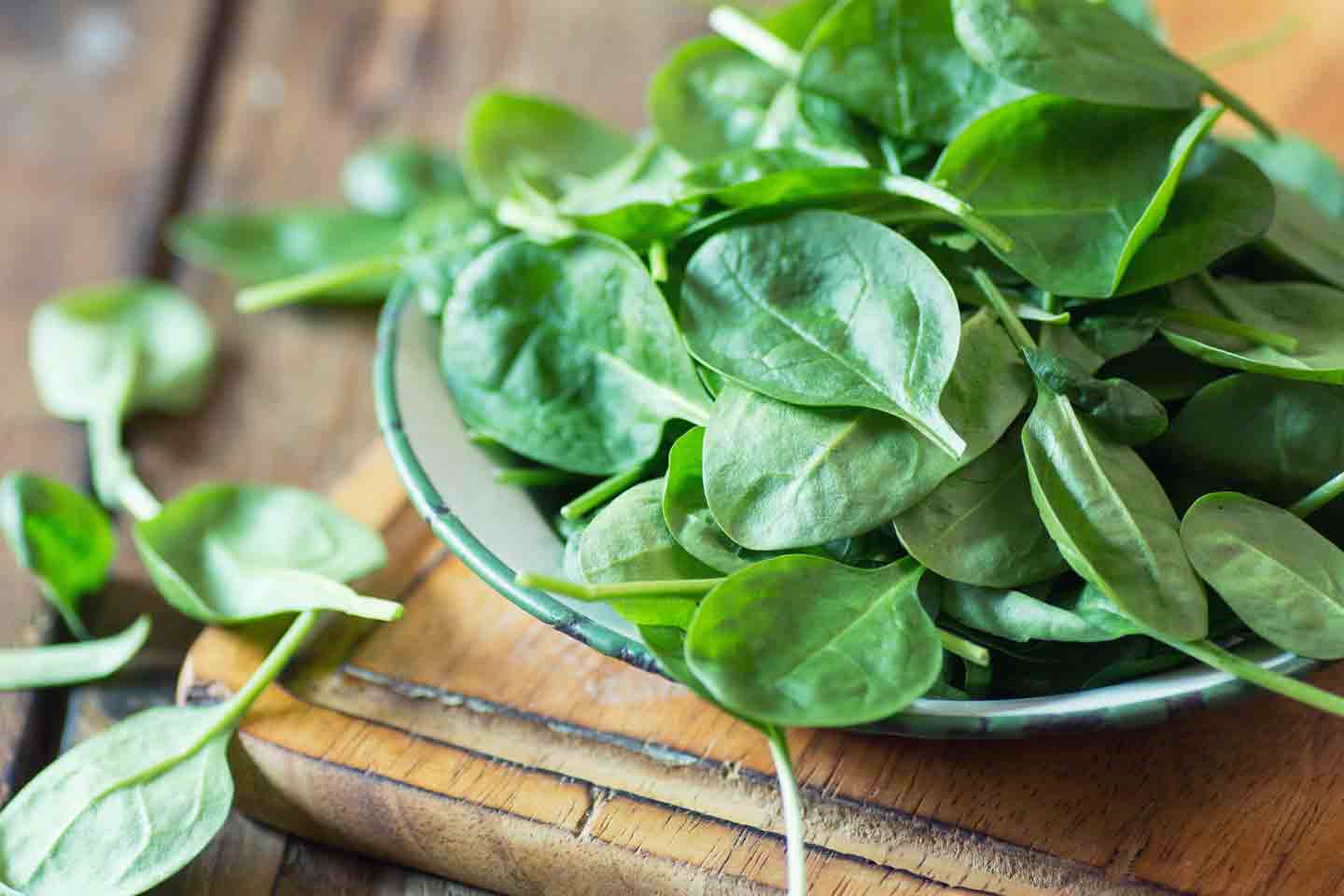
Lecic/Getty
5. Vegetables
Just like humans, birds should eat their veggies. Vegetables can be consumed during certain times of the year, such as springtime or in winter when resources are scarce. Go for the green when feeding vegetables to nearby birds, such as:
- Spinach
- Kale
- Alfalfa sprouts
- Broccoli florets
Wild greens are also an option, including:
- Clover
- Chickweed
- Dandelion
- Plantains
Birds who consume these vegetables during spring as a source of nutrition include some finches, sparrows, grosbeaks, and waxwings. While other birds like corvids can consume these, they may not choose to, especially when other items are more abundant.
And then there’s also corn, which ground foragers like bobwhite quail and doves particularly enjoy— but other species take it opportunistically, such as meadowlarks, towhees, and robins.
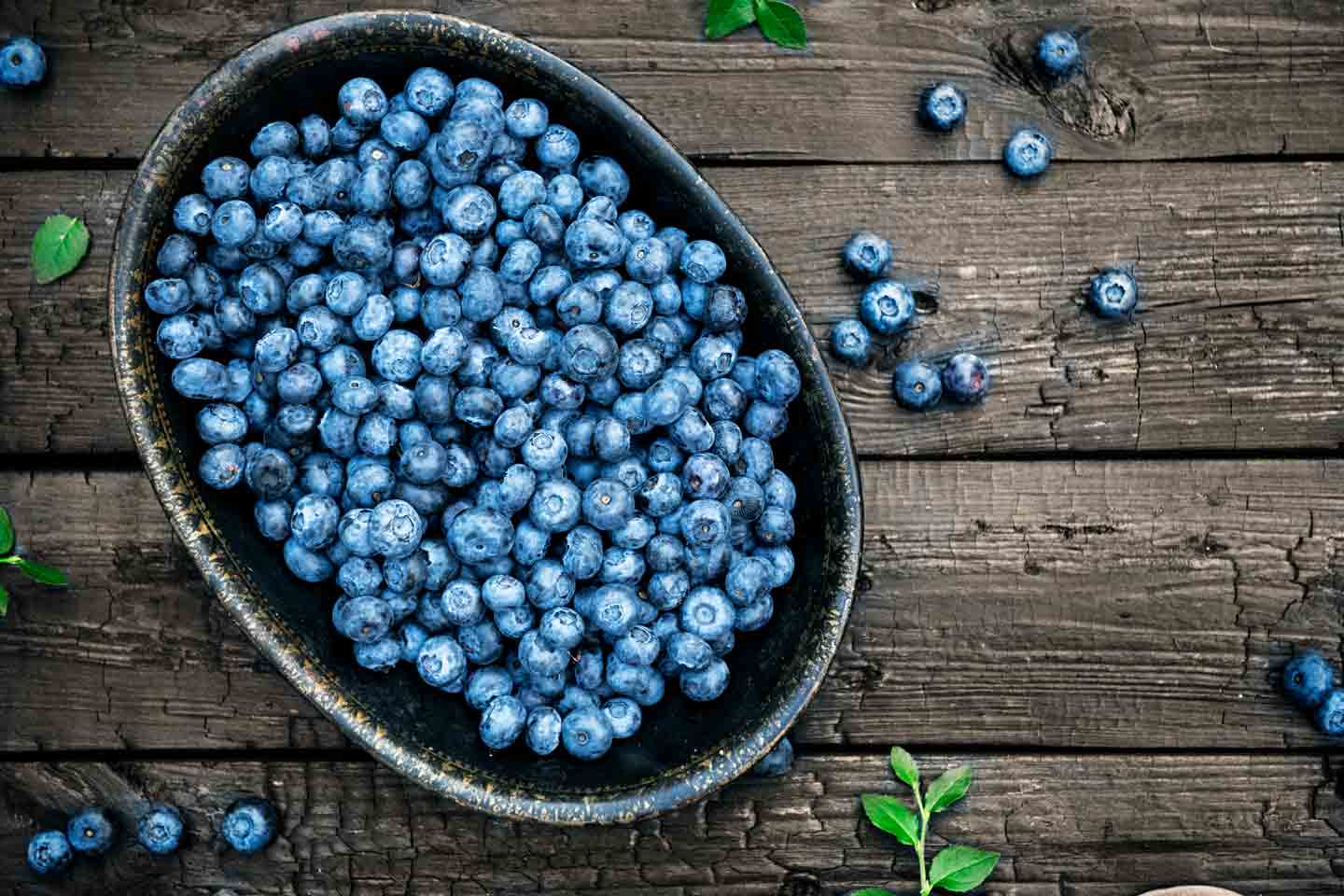
Rouzes/Getty
6. Fruits
Birds nearly always enjoy a sweet treat, and you can provide it in a healthy way by putting out certain fruits. In general, fruit can be provided year-round (feeding these items during times when they are naturally available is best) or as treats during winter when food might be scarcer.
Some large fruits can be cut into slices and hung on metal rods for wild birds to pick at, while others can be placed on platform feeders. Smaller fruits can be mixed in with dry items or placed out on platform feeders by themselves.
Keep in mind that fruits can leave sticky residue on feeders, so they will need to be cleaned more frequently if fruits are given. Be sure to change uneaten fruit regularly before it spoils.
Fresh Fruit
Fresh fruits for birds can include:
- Apples
- Crabapples
- Blueberries
- Blackberries
- Cherries
- Pears
- Mulberry
- Elderberry
- Persimmon
- Raspberries
- Grapes
- Strawberries
Many passerines enjoy these foods, including:
- Catbirds
- Chickadees
- Crows
- House finches
- Purple finches
- Grackles
- Titmice
- Grosbeaks
- Jays
- Orioles
- Starlings
- Phoebes
- Robins
- Tanagers
- Thrushes
- Waxwings
Some species of flycatchers and kingbirds may consume a small number of fruits, too.
Dried Fruit
Dried fruit is also an option. Consider feeding:
- Raisins
- Blueberries
- Cranberries
- Currants
These may be attractive to thrushes, waxwings, catbirds, and mockingbirds. Be sure to feed only dried fruits without added sugar or dry your own.
For another fruity delicacy, grape jelly can be placed in special feeders for Baltimore orioles.
Fruit Trees
You can also consider fruit-producing trees and shrubs that birds will enjoy in your backyard. Focus on native plantings that provide fruit. These types of plants can include:
- Beautyberry
- Viburnum
- Hollies (American, Deciduous and Gallberry, which is also known as Inkberry)
- Dogwood (Flowering, Swamp)
- Wax Myrtle
Birds like thrushes, warblers, gray catbirds, Northern mockingbirds, Eastern phoebes, Eastern towhees, Northern cardinals, and house finches may flock to these fruit-abundant plantings.

nitrub/Getty
7. Nuts
Woodpeckers love to eat acorns, walnuts, beechnuts, almonds, pecans, and hazelnuts. Some other species of birds, like nuthatches, tits, and jays, may take them as well, especially if walnuts are crushed into smaller sizes. These can be offered year-round if available, but keep in mind that squirrels will want to savor these nutty treats as well.
How To Feed Wild Birds
There are all sorts of ways you can help birds enjoy some yummy food.
Feeders are a natural place to start. Some feeders are designed to discourage certain unwanted animals, such as squirrels, raccoons, or even specific species of birds that can become pests, Dr. Varble says.
However, “some bird species need more space to perch and may prefer open-tray feeders,” she adds. “They may resist perching on feeders with a roof.”
There are also special feeders that hold nectar for hummingbirds. Feeders that attach to windows, like this one from PetFusion, bring the joy of bird-watching to a wider audience—including those with limited mobility. Even your favorite feline can get in on the bird-peeping action from a place where both are protected and safe, Dr. Varble notes.
Additional ways to feed birds include:
- Scattering the food on the ground
- Setting out treats on a platform
- Providing bird-friendly plants that produce seeds, berries, and nectar
- Hanging food items (often filled with suet) from mesh bags or halved oranges stuffed with suet
Tips for Feeding Wild Birds
Now that you know what birds eat and different ways to get food to them, let’s go over some pro bird-feeding tips.
1. Hang an Array of Feeders
To attract a variety of birds to your backyard, hang an array of feeders. Experts say providing only one type of feeder means you’ll get only a small group of the native species that’s visiting.
Different species vary in whether they prefer platform feeders, trough feeders, suet feeders, hummingbird feeders, or sack feeders, so it’s important to have the right kind of feeder to attract the birds you are interested in seeing.
Further, separating your foods and/or seeds among your feeders keeps things organized and can aid in swifter feeding.
Recommended Products
2. Clean Feeders Regularly
As with any bird feeder, it’s essential to clean it about once a week. Feeders cause wild birds to congregate, and improper feeder hygiene can contribute to disease transmission among birds that use the feeders.
In fact, while feeders make for an easy source of food for all birds, sick birds may take more advantage of these stations because they may have difficulty finding food in the wild.
Cleaning feeders with warm, soapy water once a week and intermittently following this cleaning regimen with a bleach solution (one part bleach to nine parts water) can help cut down on the spread of disease. The feeder should be thoroughly rinsed and dried before it’s placed back up and refilled.
Pro Tip: Keep in mind that some feeders may require different cleaning and sanitation methods, so it’s also important to follow manufacturer instructions.
3. Take Feeders Down as Necessary
If there’s a particularly infectious disease going around your region, you may want to skip filling the feeder altogether or take it down for a period until the disease has dissipated.
If you choose to feed seeds, fruit, or suet to birds, know that it might get wet. If left in a soggy state for too long, things will start to grow on it. For example, sunflower seeds can sprout if you wait too long to clean them out after a heavy rain.
Mold can grow on any food, so be vigilant about cleaning your feeders, as not only can moldy food harm birds, it may also deter them from feeding.
4. Consider Feeder Placement
To help keep wild birds safe as they eat, think through the placement of your feeders. For instance, keeping feeders in areas with less dense vegetation and that are more visible can be ideal, as it’s not only easier for you to see the birds you are attracting, but it also prevents predators from having places to hide near feeding stations.
And naturally, be cautious if you happen to keep feeders near windows. If a feeding station is near a window, it can result in an occasional window strike. You can prevent these collisions by putting up UV-reflective window clings (a type of decal or sticker that is visible to birds but less so to humans) on the closest window to the feeder so birds can spot the window.
In general, keep feeders within 3 feet of a window to decrease the possibility of serious injury, or beyond 12 feet, where the bird is less likely to strike the window at all.
5. Keep Domestic Cats Indoors
Your sweet feline may enjoy an al fresco sunbathing, but they are a hazard to birds and can even deter them. “Cats are a major predator of the songbirds we try to attract with our feeders, and we want to keep our songbird population healthy and thriving as well as keep our domestic cats safe and secure,” Dr. Varble says.
6. Add a Bird Bath
In addition to your feeders, maintain a bird bath or two in the area. Birds need to get hydrated, and they’ll need water to wash down all that delicious food you’re feeding them! Keep an eye on bird baths to see if they evaporate—otherwise, change any standing water every other day.
Recommended Products
What Not To Feed Wild Birds
While there’s an extensive range of foods available to feed to backyard birds, steer clear of processed foods intended for humans, such as:
- Candy
- Chips
- Pasta
- Baked goods
- Crackers
Avoid dairy products as well, since those can spoil.
Soft fats, like bacon drippings or butter, can be messy and foul birds’ feathers.
And of course, never put out spoiled food.
Additionally, bird aficionados commonly avoid feeding birds rice, millet, and sorghum.
Birds deserve diverse, nutritious diets, just like us. Think of the joy you’ll give them when they score a strawberry or snatch up a mealworm! As with any animal, however, be extra cautious with wild birds, keeping a distance while you view them and maintaining your feeders so they’re eating in a clean environment.
Be sure to stay educated and read up on foods that can be harmful or poisonous to pet birds, and the top things that birds find frightening.
Expert input for this story provided by Dana Varble, DVM, CAE, chief veterinary officer with the North American Veterinary Community (NAVC), a nationwide veterinarians’ organization; Stephanie Lamb, DVM, DABVP (avian practice), co-owner of Arizona Exotic Animal Hospital in Mesa, Phoenix and Tucson, Arizona; John A. Gerwin, research curator, ornithology, North Carolina Museum of Natural Sciences in Raleigh, North Carolina; and Stanley Temple, professor emeritus of wildlife ecology, University of Wisconsin-Madison.
This content was medically reviewed by Chewy vets.
Wendy Rose Gould contributed to this story.
